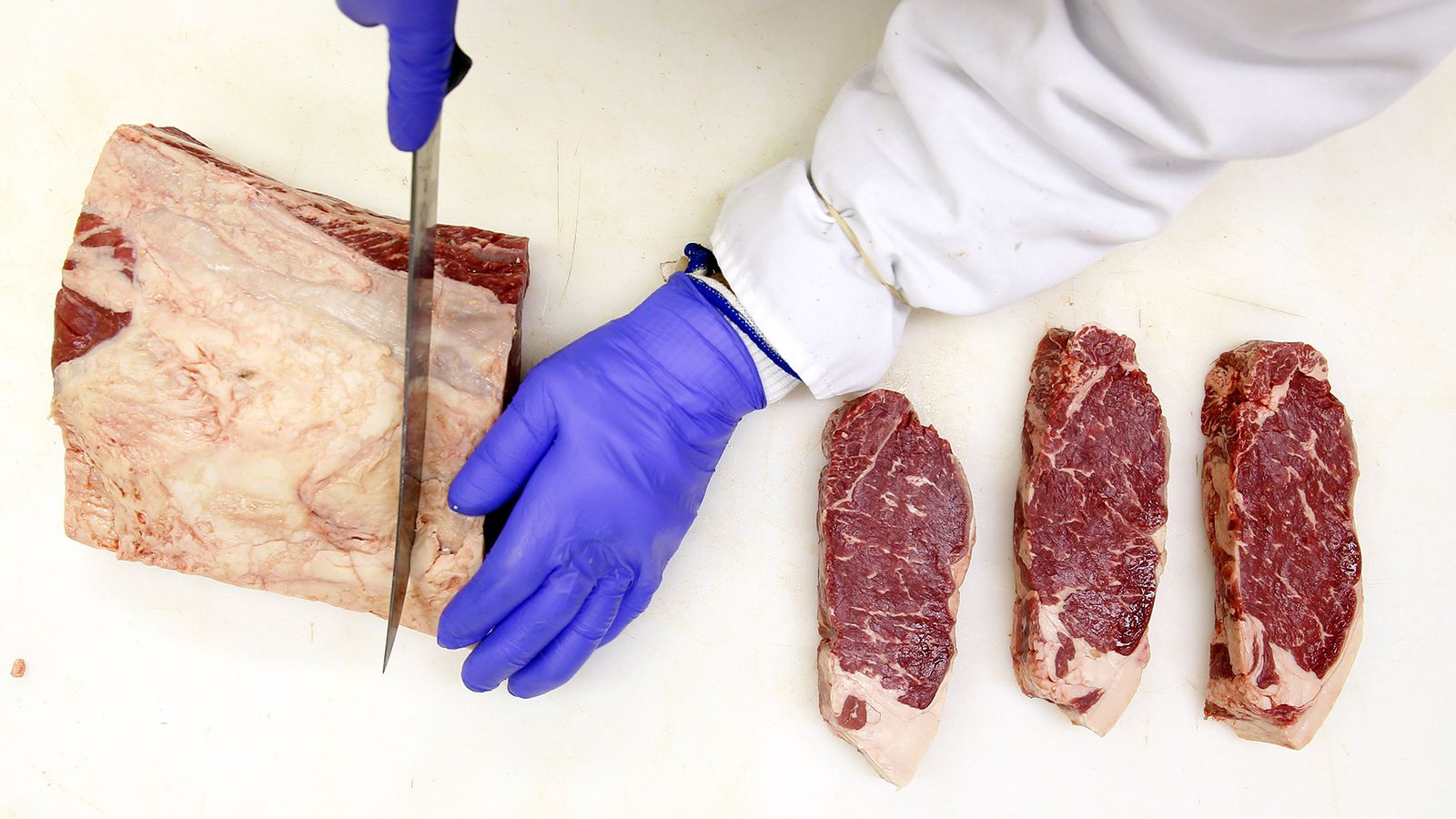Britain’s meat industry is warning of a shortage of carbon dioxide gas without which the food manufacturing process could grind to a halt.
Representatives of the industry have been in emergency talks with the government over the crisis which is a knock-on effect of the Europe-wide surge in natural gas prices.
CO2 is used to stun animals before slaughter as well as for vacuum-packing meat products – but that CO2 is the by-product of the production of fertiliser.
The spike in gas prices has prompted UK fertiliser factories to suspend or cut production.
That means there is now a 60% shortfall in Britain’s supply of CO2 – and the meat industry fears similar stoppages may be affecting plants in Europe that they would normally have turned to in an emergency.
The British Meat Processors Association (BMPA) said in a statement that the crisis looked set to be “a lot worse” than a previous CO2 shortage experienced in 2018.
“CO2 gas plays a critical and irreplaceable role in the food and drink manufacturing process and businesses can grind to a halt if they cannot secure an adequate supply,” the BMPA said.
“This means that, once their current stocks of the gas run out (estimated to be in less than 14 days) some companies will have to stop taking animals and close production lines, leading to a logjam of animals back to the farms.”
It adds to problems already being seen in the pig industry where farms have tens of thousands of surplus swine because of a shortage of workers at abattoirs – after many of them went home to eastern Europe.
A shortage in the vacuum-packing process, which adds up to five days’ shelf life to red meat and 14 days’ shelf life for poultry, threatens to pose additional problems – especially given that supply chains are already being gummed up by the shortage of HGV drivers.
Richard Griffiths, chief executive of the British Poultry Council, said: “With fewer than 100 days to go until Christmas, and already facing mounting labour shortages, the last thing British poultry production needs is more pressure.
“If CO2 supplies become tighter and more unpredictable then supply chains will have to slow down.
“Ultimately, no CO2 means no throughput.”
The crisis comes after the closures of fertiliser plants in Cheshire and Teesside owned by US company CF Industries as well as production cuts at ammonia factories across Europe operated by Norwegian company Yara including one in Hull.
BMPA chief executive Nick Allen said: “We’ve had zero warning of the planned closure of the fertiliser plants… and as a result, it’s plunged the industry into chaos.”
The BMPA said it had held talks with the government late on Thursday and they were ongoing.
A government spokesperson said: “We are monitoring this situation closely and are in regular contact with the food and farming organisations and industry, to help them manage the current situation.
“The UK benefits from having access to highly diverse sources of gas supply to ensure households, businesses and heavy industry get the energy they need at a fair price.”


